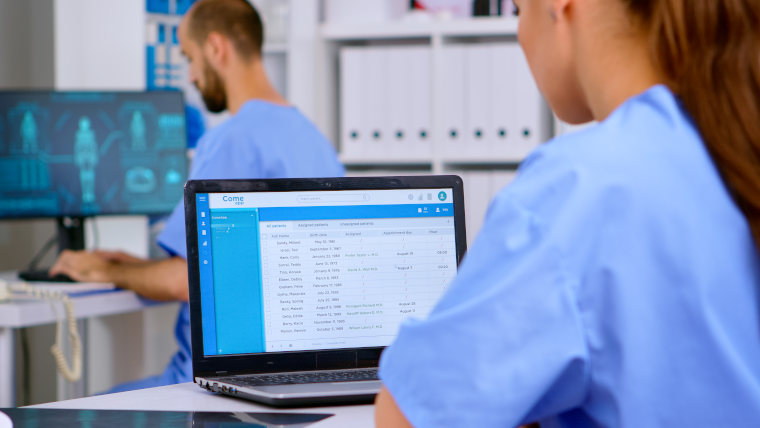Why should I seek a HIT degree or certificate?
- Earning a degree or certification can enhance opportunities for a promotion.
Employment Outlook
Jobs in the health information technology fields continue to expand. According to the U.S. Bureau of Labor Statistics, employment in these types of positions is projected to grow between 9 to 16% (from the Job Outlook heading of the job on www.bls.gov) from 2023 to 2033.*
Sample Careers and Salary Outlook
- Health Information Technologist/Medical Coding: $67,310
- Healthcare Supply Chain Management: $74,770
- Medical Assistant: $44,200
- Medical Secretary: $43,730
- Medical Records Specialist/Medical Coding: $50,250
(Note: Salary data from 2023 to 2024)
Online
The degree and many of the certificate programs can be completed entirely online.
State Grant
See Missouri State-West Plains' Fast Track information.
The degree and all four certificates are eligible for Missouri’s Fast Track Workforce Incentive Grant.
Degree and Certificates
Associate of Applied Science in Health Information Technology (HIT)
This two-year degree helps graduates wear many different hats in the healthcare field as they learn the practical application of class concepts, facilitated through real-life experience working in the region.
Health information technicians are healthcare professionals in charge of processing patient data. They ensure quality, accuracy, accessibility and security in both paper and electronic systems.
This degree helps students earn credentials employers recognize and prepares them for a career in the growing health information field. This program is part of a stackable degree path that allows you to earn your degree one credential at a time.

Certificate Options:

Electronic Health Records Specialist

Medical Office Administrative Assistant

Medical Clinical Assistant

Medical Coding
Additional Certificate

Healthcare Supply Chain Management
Contact Information
For more information about the HIT degree or certificates and how to apply contact:
Tresa Ryan, Assistant Professor of Health Information Technology
Email: WPHIT@MissouriState.edu
Phone: (417) 255-7786
^ Missouri Economic Research and Information Center, Occupational Employment and Wage Estimates, https://meric.mo.gov/data/occupation/occupational-employment-wages